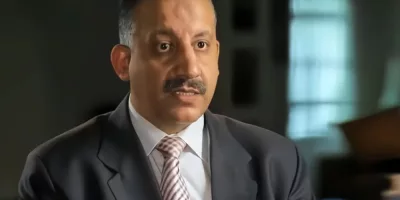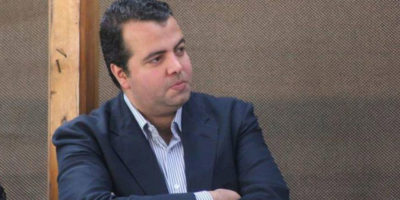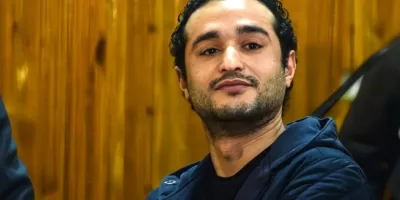Geneva 31st October 2017
Egypt Project
Violations in places of detention
On the 16th October, 2017, “Committee for justice” sent an urgent call to the Special Rapporteurs on human rights starting with the Special Rapporteur on Extra-judicial, Summary or Arbitrary Executions complaining the 7th October 2017 verbal rejection of the appeals presented by the defendants’ lawyers regarding the finalized death sentences issued by the military court in case number 325 year 2015, Alexandria in 2nd March 2017 against seven defendants in the case known as “Kafr al-Sheikh Stadium”, the thing that makes the defendants subjected to execution at any moment determined by the Military prosecution.
The seven death sentences were issued against:
- Loutfy Ibrahim Ismael Khalil
- Ahmed Abdel Moneim Salama Ali Salama
- Ahmed Abdel Hady Mohammed al-Suhaimy
- Sameh Abdallah Mohammed Youssef
(all four in person), in addition to those trialed in absentia:
- Ahmed Abdul Hamid Mansour
- Fakeeh Abdullatif al-Agamy
- Sameh Abu Shair
The case dates to April 15, 2015, when an explosion took place next to Kafr el-Sheikh stadium, where a number of military college students were waiting for a bus and the explosion killed three students and injured two others.
The public prosecution investigated the case until April 19, 2015, when former Attorney-General Hesham Barakat referred the case to Military Prosecution in Tanta, which in turn referred it to a military court in Alexandria. The court handed the cases of seven defendants to the Grand on February 1, 2016, and sentenced them to death on March 2, 2016.
“Committee for justice” received legal documents and complaints from families of some of the defendants, stressing their grave doubts about access to a fair trial and defense. The forced disappearance of the defendants began on the day of the explosion, according to copies of the official reports submitted to the public prosecutor’s office, including the main defendant, 21-year-old Loutfy Ibrahim. Ahmed Abdel Moneim Salama was arrested the next day without warrants or permission from the Public Prosecution.
The official reports of arrest, were conducted by the Egyptian ‘National Security Agency’ more than two months after the defendants had enforcedly disappeared, where during this period the authorities ignored all legal complaints filed by their families. Accusations of kidnapping and torture against security forces were not investigated, and were dismissed on December 12, 2015 without any charges.
All defendants in the case, without exception, were subjected to periods of forced disappearance of more than 70 days before the Ministry of Interior revealed their detention location. Most of the defendants were tortured since the first day of their disappearance, as detailed in their written testimonies given to their relatives during prison visits. This has been confirmed by signs of torture on their bodies, even after seven months of arrest, according to their relatives.
As well as a lack of investigation into allegations of torture and conflicting statements, testimonies claiming that some of the defendants were in other places, or even cities, at the time of the incident were not investigated. The educational administration issued an official statement (which CFJ has a copy of), according to which Fakeeh Abdellatif al-Agamy, the teacher sentenced to death in the case, was at Al-Shaheed Ahmad Saad school where he works, and did not leave all day. Additionally, the testimonies of defense witnesses documented during the hearings state that some of the defendants sentenced to death were found in other locations at the time of the explosion: Sameh Abdallah in 6th of October City, Ahmed Salama in Shino administrative center, more than 10 kilometers from the scene of the accident, and Loutfy at his place of work (with a contractor and owner of the property), which is about two kilometers from the scene of the incident. These testimonies were not mentioned in the reasoning for the verdict.
“Committee for Justice” condemn all violations of the rights of the defense, and the defendants’ right to a fair trial, as stipulated in article 14 of the International Covenant on Civil and Political Rights. The forced disappearance of the defendants contravenes article 40 of Egypt’s Penal Code, which stipulates that, “No one shall be arrested or imprisoned except by an order of the competent authorities, and shall be treated in a manner that protects human dignity and may not be harmed physically or morally.” Torture documented by the defendants and their relatives violates Article 52 of the Egyptian Constitution, which states that, “Torture in all forms and types is a crime that is not subject to prescription.” While torture is considered a “crime punishable by law,” in accordance with article 55 of the Constitution, which also states that, “Every statement proved to be made by a detainee under any of the foregoing actions, or threat thereof, shall be disregarded and not relied upon.” This is reinforced by article 302 of Egypt’s Penal Code.
“Committee for Justice” had previously requested a non-ratification of the judgment issued on March 2, 2016, and affirmed its rejection of the military trials of civilians. It also demanded the retrial of the defendants before a competent civil court, with all the guarantees of a fair trial and the opening of an urgent and independent investigation into the torture and forced disappearance that the defendants were subjected to.
The ‘Military Appeals Supreme Court’ refused to give the defendants’ lawyers a copy of its rejection verdict to the appeal filed by the lawyers against the ‘Military Criminal Court’ judgement. The court staff’s excuse for not providing the document is that it is considered one of the military secrets that cannot be shared.
This is what prompted the lawyers of the defendants on 22nd August 2017 to issue a warning sent officially by the Ministry of Justice to the following people:
1-Major general / Head of Military justice court ‘President of the supreme court of Military appeals’, in his capacity.
2- Major general / Military general prosecutor, in his capacity.
3-Major general / Head of Military Prosecution of the Supreme Court of Military Appeals, in his capacity.
4-Major general / Head of the branch of Civilian and Administrative Affairs of the Military court, in his capacity.
It is worth mentioning that until writing this complaint, no one had responded to the defence requests to obtain the documents from the Military Prosecution at the Supreme court of Military Appeals, which forced the defence to file a supplication without such documents.
On 30th August 2017 the lawyers of the defendants filed a request to reconsider the investigations in the case, due to the emergence of new facts that could indicate the innocence of the defendants sentenced in this case. ‘Committee for Justice’ received a copy from the documents of a different trial currently being viewed by the Criminal Court of Giza, case ‘no. 9170 for the year 2017, El-Talbeyyah crimes, registered under no. 2301 for the year 2017, South of Giza total’, registered under no.832 of the year 2016, Supreme State security exclusive’, registered under no.32 for the year 2017 Supreme State security crimes’ with a hearing taking place on7 November 2017in front of ‘area 14 Terrorism’. In this case, the official investigations documents of the Public Prosecution mentioned the testimony of a man called Mohamed Abdel Fattah Hamed El-Sayyed El-Behairy from the city of Riyadh in Kafr El-Sheikh governorate, who said that one of the people originally accused in Kafr El Sheikh case, whom was killed by the ministry of Interior during an exchange of fire, is indeed the one who carried out ‘Kafr El-Sheikh stadium’ operation. This calls for a thorough investigation by the Director General/ Military General Prosecutor to verify the truth, because this could be considered a decisive fact that completely denies the allegations against the defendants and committing the crime, and questions the evidence provided in the entire case. This requires the suspension of the implementation of the death penalty until the realization of this reality under a comprehensive judicial investigation.
These trials are clearly a “mockery of justice” as qualified by the eight United Nations Special Rapporteurs in a press release issued on 31 March 2014. These rulings are clearly part of an orchestrated campaign to stifle any dissent and are just extreme examples in a pattern of politicized implausible verdicts handed down to support the military rule.
“committee for justice” requested to intervene with the Egyptian authorities to demand that they abide by their international obligations resulting from the ratification of international human rights conventions, and therefore to cancel the death sentences handed down after a grossly unfair trial. “committee for justice” would consider any execution of the death sentences to constitute an extrajudicial, arbitrary and summary execution.
“committee for justice” requests a reminder for the Egyptian authorities of their obligations to respect and guarantee human rights and fundamental freedoms in all circumstances, regardless of the Egyptian citizens’ political beliefs and opinions, and to put an end to the current crackdown on dissent of all sorts through arbitrary arrests, detentions, and now death sentences issued after grossly unfair trials.






